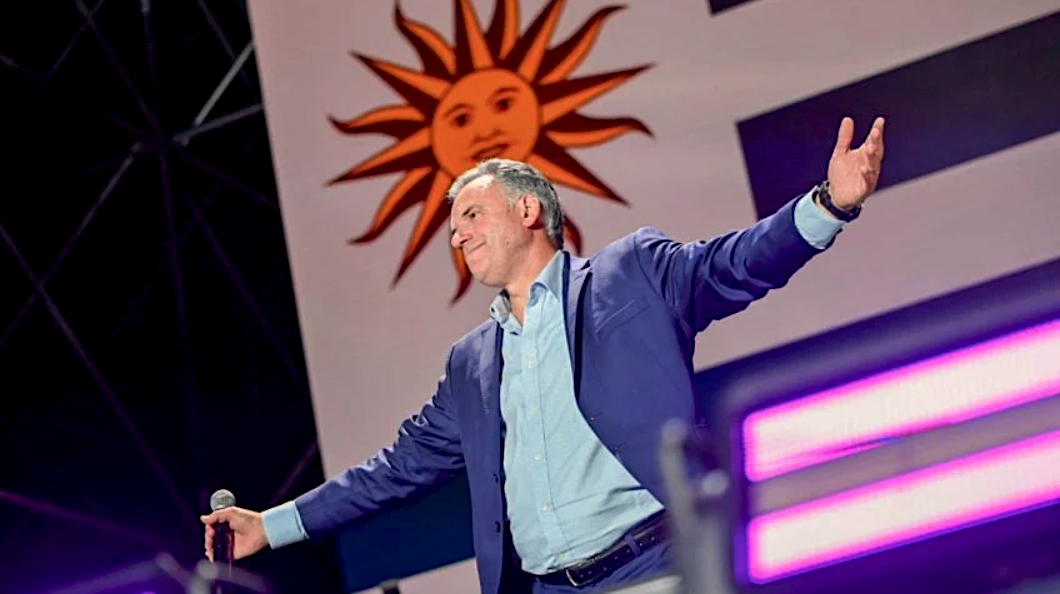
Published 11/25/2024 07:48
After five years, the left returns to command in Uruguay with the victory of Yamandú Orsi, from the Frente Amplio, in the second round of the presidential elections this Sunday (24). Orsi, 57 years old, won 49.8% of the vote, surpassing Álvaro Delgado, the center-right government candidate, who obtained 45.9%, according to official results. The significant participation of 89.4% of voters reaffirms the democratic commitment of Uruguayan society.
Orsi assumes government on March 1, 2025, succeeding Luis Lacalle Pou, of the National Party. With an approval rating of 52%, Lacalle Pou returns to the Senate, where he must prepare his candidacy for President for 2029.
A strategic ally for Lula in Mercosur
Orsi’s victory is seen as a reinforcement of regional integration and a diplomatic achievement for Brazilian President Luiz Inácio Lula da Silva. With political alignment and history of collaboration, Lula and Orsi plan a bilateral meeting in Montevideo on December 5th and 6th, during the Mercosur summit.
Lula welcomed the election of the new Uruguayan president with enthusiasm: “This is a victory for all of Latin America and the Caribbean. Brazil and Uruguay will continue to work together in Mercosur and in other forums for fair and sustainable development, peace and regional integration.”
With the new government, Uruguay must prioritize foreign policy aimed at strengthening Mercosur. During Lacalle Pou’s tenure, there was tension in the bloc, including attempts at unilateral trade negotiations with China. Orsi, however, has already indicated that he will seek to boost the bloc, but always within Mercosur’s consensus rules, highlighting Brazil’s leadership.
The story of Yamandú Orsi
The son of rural workers, Orsi was born in the city of Santa Rosa, in the interior of Uruguay. After facing economic difficulties in his childhood, he moved to Canelones, where he began his political career. History teacher and businessman, he joined the Frente Amplio in 1989, in the movement led by José “Pepe” Mujica, of whom he is considered a political pupil.
Orsi governed Canelones for two consecutive terms (2015-2023), consolidating his leadership in the most populous department in the interior of the country. His presidential campaign was marked by his commitment to dialogue, social inclusion and strengthening environmental causes.
Even though he is agnostic, Orsi was educated in Catholic schools and has stated that his interest in politics was sparked by popular music and social movements during the post-dictatorship of Uruguay.
Challenges and governance
Orsi’s victory, with a margin of just over 95 thousand votes, reflects the division of the Uruguayan electorate. In Congress, the Broad Front will be the majority in the Senate, but will need to negotiate with the opposition to achieve a majority in the Chamber of Deputies.
The elected president will have to deal with sensitive issues, such as pressure for new trade agreements and Uruguay’s position in relation to Nicolás Maduro’s regime in Venezuela. Orsi has already indicated that he will follow Lula’s moderate stance, prioritizing dialogue and the defense of democracy.
Regional integration in focus
Orsi’s election represents a shift in regional dynamics, with Uruguay aligning itself more closely with Brazil and reinforcing Mercosur cohesion. On the other hand, Delgado’s defeat is a setback for Argentine president Javier Milei, who defended making the bloc more flexible for bilateral agreements.
Uruguay, although small in territory and population, plays a significant role in the balance of Mercosur, where each national vote has equal weight. With Orsi and Lula strengthening their alliances, regional integration and multilateralism could gain new momentum in Latin America.
Source: vermelho.org.br

